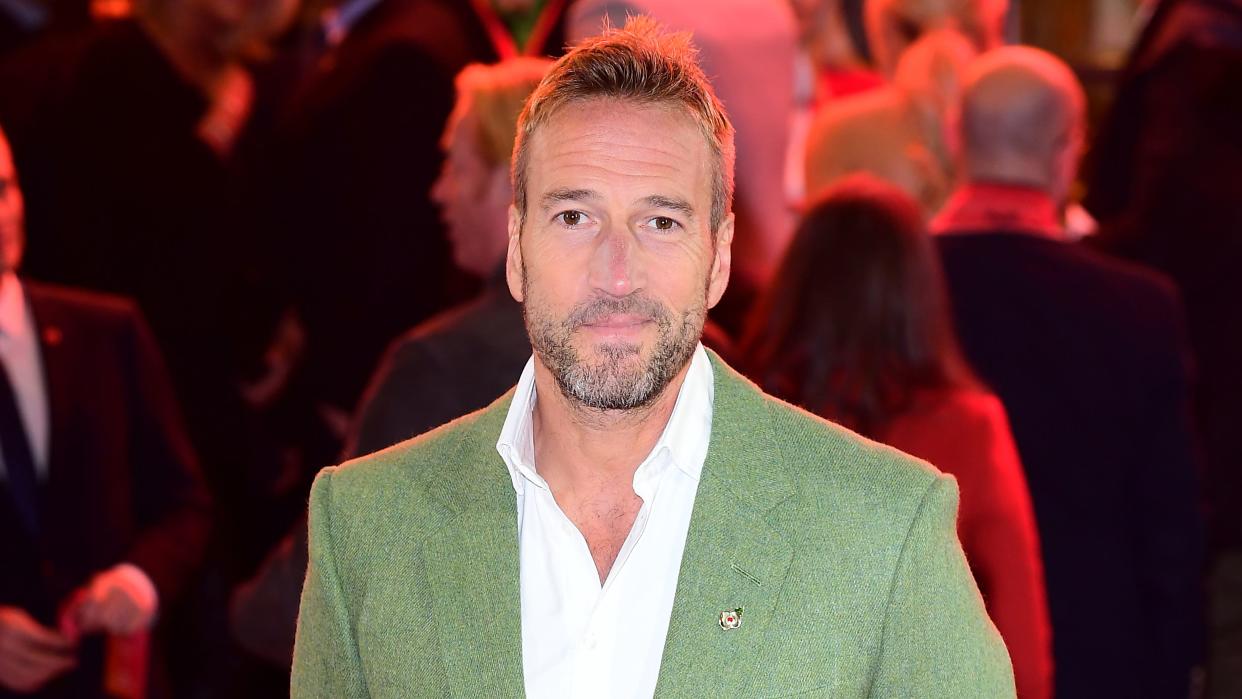Ben Fogle says he nearly died in ‘very close call’ on country lane

Ben Fogle has said he suffered a “very, very close call” when he was almost killed by a delivery driver on a rural road near his home.
The TV star is calling for a change to the speed limit on the country road, so that delivery drivers cannot travel at 60 miles per hour through his village in Buckinghamshire.
Fogle was running with his dog on the road when a delivery driver sped round a blind bend and skidded to a halt a few feet from him.
He told ITV’s Good Morning Britain: “Almost everyone in our village drives probably an average of 18 miles an hour and for me, that feels too fast. So most of it is self-regulating. And actually the law says even if it says it’s 60 miles an hour, you have to be safe and in control.
'Cars can drive at 60mph on my pavement.'
He has scaled Mount Everest and raced to the South Pole, but @Benfogle 'nearly died' after almost being hit by a delivery van going 60mph on a single-track road in his village. pic.twitter.com/vf4TSBfGgq
— Good Morning Britain (@GMB) April 18, 2024
“The problem is there’s a rise of home deliveries now, there’s a lot of delivery drivers who have to hit their targets.
“And they obviously have targets that are built in with a 60 mile an hour algorithm.
“So the problem is that these poor delivery drivers, I’m not blaming them, I really am not, have to hit their targets or they lose their job.”
He added: “The problem is we use the road as a pavement. It’s my pavement so cars can drive at 60 miles an hour on my pavement.”
Fogle said he believes this is an issue all over the country, adding: “I have had so many people getting in touch with me on this and it shouldn’t take a celebrity to try and make a change here and I’m really hoping I can change what happens in our village but there are so many other people that are experiencing the same.
“We moved to the countryside so my children could walk from house to house. I don’t want to put them in a car. The whole point is to be outside and I feel like an irresponsible father letting my children walk on our pavement.
“And the problem is that the local council have responded and they’ve said they think the speed limit is appropriate, they haven’t reported enough crashes.
“We’ve had so many crashes in our village, but no-one when they crash are going to admit to speeding.”
Describing how he was almost hit by the van, he said: “I don’t want to be too dramatic about it but it really was a very, very close call.
“And it’s one of many, by the way, but this this one was the straw that broke the camel’s back.
“I want to live in a place where we feel safe walking from house to house, which is why I moved there.
“And of course this 20 mile an hour speed limit that has been introduced in many areas has been very controversial, especially the imposition in Wales, a lot of people don’t like the blanket ban.
“So it’s almost given 20 mile an hour limits a bad name and the irony is that, for many, 20 has been introduced in an area where arguably it’s not needed, and arguably not wanted.
“We all want it, I wouldn’t speak for every person in our village, but 95% want a 20.
“But the local council and therefore the Department of Transport said it’s not necessary, but we know (it is).”
A response from council to the show said: “Our speed limits are set against Department for Transport guidance, we remain responsive to changes in local road and traffic conditions but cannot agree to every request received.”
Fogle said: “Our local council member has tried many times and has failed.. What they do is they set up a way of establishing the average speed limit. And the average speed limit through our village is something like 26 miles an hour. So it is low.
“The problem is that they don’t catch those two or three speeding vans that come through and that it takes one speeding van to actually kill someone.
“So we are self-regulating already. What we want is that it’s put into the algorithm matrix that goes into satnavs, so those people who don’t know the village, who don’t know how dangerous it is, will be alerted and will drive at a sensible speed limit like most of us do already.”
A Department for Transport spokesperson said: “While we do have guidance to ensure consistency, local authorities set speed limits given their knowledge of the area.
“We are committed to road safety and just this year ran a major campaign specifically aimed at tackling speeding among young male drivers, with a focus on rural roads.”

 Yahoo News
Yahoo News 
